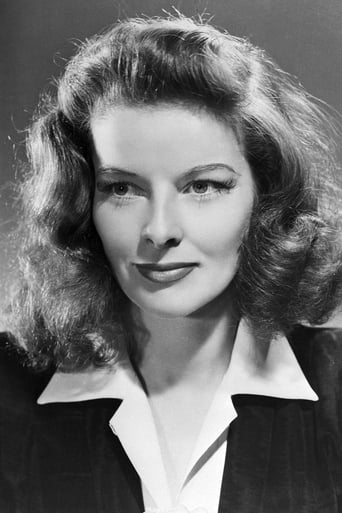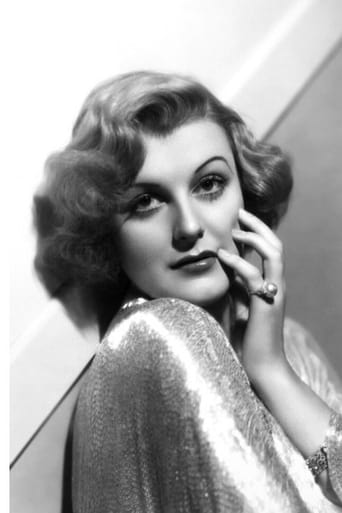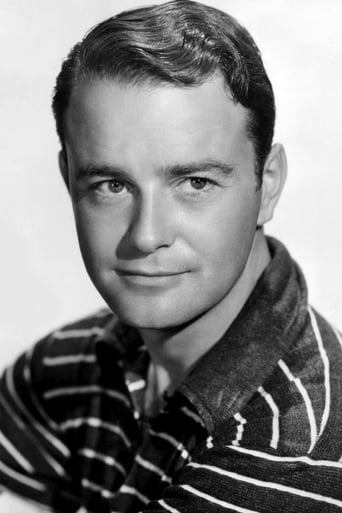Alicia
I love this movie so much
Mjeteconer
Just perfect...
Curapedi
I cannot think of one single thing that I would change about this film. The acting is incomparable, the directing deft, and the writing poignantly brilliant.
Dana
An old-fashioned movie made with new-fashioned finesse.
dsmith-25000
Seeing it again, I realize that the morals of the story are:
Rich is Bad; Poor is Good
Rich is Unhappy; Poor is Happy
Rich is pro-Nazi (see comment about "right kind of government" from Seton cousin Cram); Poor is anti-Nazi (See Johnny Case reaction)
Hollywood composed of the richest non-business men in the then world pushing these ideals may have satisfied audiences of the depression decade, but don't work today. And weren't true then or now.
preppy-3
Hard-working Johnny Case (Cary Grant) is going to marry super-rich Julia Seton (Doris Nolan)--but she expects him to dump his career after the marriage and join her father in the banking business. That doesn't sit well with Johnny or Julias sister Linda (Katharine Hepburn) who starts to fall for him herself.Predictable storyline but the script is great full of one-liners put over by the entire cast. The film moves quickly and the whole cast is great--especially Hepburn who's superb. Briskly directed by George Cukor. Well worth seeing.
Tad Pole
. . . it's really hard to be a pimp, but it's a lot tougher to be a Wall Street banker, as HOLIDAY proves. Cary Grant's character, up-by-his-bootstraps Baltimore boy "Johnny Case," does not understand what Wall Street types know before they're done sucking their Binkies: He who dies with the most money, wins. Harvard-educated utilities specialist Johnny thinks he can take his commission from closing the "Bayshore deal" and run. "Retire young, and work old," as he puts it to his right-thinking fiancée, "Julia Seton." Julia, a member of the "60 Families" (today called "The One Per Cent") patiently tries to point out the fallacies in Johnny's thinking. It's not like the fleeting pleasures of youth will do you much good in the grave. People don't build monuments to guys who Hoboed the Seven Seas. You don't build up frontage for your five-story mansion on Fifth Avenue by being a banking dilettante. Though something such as the Bayshore deal might consist of five minutes of doodling on a napkin at your country club or favorite night spot (and constitute a whole decade's profit), you've got to keep your nose to the grind stone of the yacht club and nightly champagne circuit to make sure you capture the crucial opportunity to work your brain for five minutes when it comes along every ten years or so. When that five minutes of jotting down a few figures for an appropriate counterpart from the One Per Cent (or 60 Families) bears fruit and you make as much from a few pencil strokes as ten thousand of the "Little People" can make from a lifetime of hard physical labor, it's your responsibility to build a home big enough to house an entire village of the Ordinaries, and to Party like you've died and gone to Heaven already. Since Julia just can't get these quintessential American principles through Johnny's thick skull, this sad-sack loser gets delegated to take the Seton family's "Black Sheep" off their hands.
Dalbert Pringle
Everything that "The Philadelphia Story" was, "Holiday" wasn't.If the point of Holiday's story was to convince me that the incredibly rich were just a bunch of boring, stuffy, petty, snivelling, tantrum-throwing, one-dimensional goofs (Yeah. That about covers it), then, yes, it certainly achieved its intended goal quite successfully.Holiday is a prefect example of why I generally detest and often avoid watching "Screwball" comedies from the 1930s and 40s.Its story was so contrived, predictable and riddled with every "poor-little-rich-girl" cliché in the book that it made my skin absolutely crawl in complete revulsion to everything that it supposedly stood for.One aspect of Holiday's "far-from-believable" story that really killed me had to do with the 3 spoiled-brat children (who were all around the age of 30) of wealthy banker, Edward Seton.These 3 big sucks clearly resented "daddy-dearest" for the dominating and (apparent) strangle-hold that he had on their lives. Yet these 3 little whining cry-babies continued to live under the same roof with this overbearing, money-grubbing, Wall Street monster. And that, to me, rendered them all a bunch of selfish, temperamental, hypocritical wimps as they greedily guzzled down his booze and paraded around in all of their tres' chic, designer outfits.Holiday was the sort of film whose story really sent out a very confused and mixed message about the super-wealthy set. It just couldn't decide whether it wanted the viewer to laugh at them, or to hate them, or to enviously desire to be just like them. But, whatever - This film's story was "Screwball" comedy at its absolute most detestable, in my opinion.And, besides all of that nonsense, I definitely thought that the chemistry between its 2 big-name stars, Katharine Hepburn and Cary Grant, stank, big-time. And that's because there really was no chemistry between these 2, whatsoever.Of the 4 principal characters who dominated Holiday's story, it was Cary Grant's "I-just-wanna-bum-around-for-the-rest-of-my-life" role as John Case who rang the most false and pretentious.Immaculately groomed in his tailor-made suites and shiny shoes, I wasn't convinced, for even a minute, that this "good egg" wasn't even phased one bit by the possibilities available to him through all of Seton's financial wealth. To me, Case's phony, non-materialistic philosophy didn't hide the fact that beneath his apparent selfless intentions lurked a greedy, little gold-digger just waiting to pounce on all that dough.












